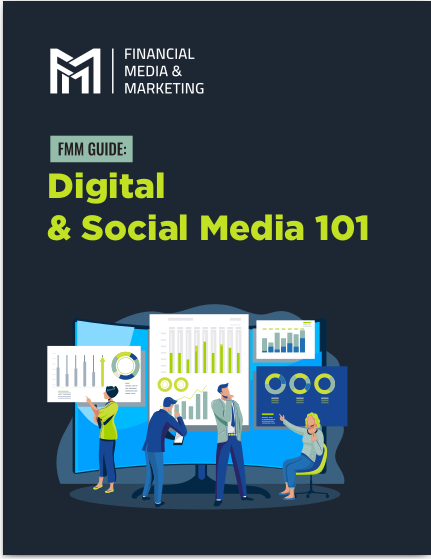Key Takeaways:
- Meta tags are essential for improving your website’s search engine rankings and driving organic traffic.
- Optimizing meta tags can help financial advisors attract more potential clients and grow their practice.
How Do Meta Tags Work? Rank Higher on Google as a Financial Advisor
Meta tags play a crucial role in search engine optimization (SEO), helping websites rank higher in search engine results and attract more visitors. For financial advisors, understanding and optimizing meta tags can be a game-changer in driving organic traffic and growing their client base. This article explores how meta tags work and provides practical tips on optimizing them to rank higher on Google and other search engines.
Understanding the Role of Meta Tags in SEO
Meta tags are snippets of text that describe a page’s content; they don’t appear on the page itself but in the page’s code. These tags help search engines understand the content of a webpage, influencing how the page is indexed and ranked. There are several types of meta tags, but the most important ones for SEO are the title tag, meta description, and meta keywords.
Title Tag
The title tag is one of the most critical meta tags for SEO. It appears in the browser tab, search engine results pages (SERPs), and is often the clickable headline for a given result.
- Importance: The title tag significantly impacts search engine rankings and click-through rates (CTR). It should accurately describe the page content and include relevant keywords.
- Optimization Tips: Keep the title tag between 50-60 characters, include primary keywords near the beginning, and make it compelling to encourage clicks.
Meta Description
The meta description provides a brief summary of a webpage’s content. While it doesn’t directly affect rankings, a well-written meta description can improve CTR, which indirectly influences SEO.
- Importance: A compelling meta description can entice users to click on your link over others in the search results.
- Optimization Tips: Keep the meta description under 160 characters, include relevant keywords, and write a clear, concise summary that highlights the page’s value.
Meta Keywords
Meta keywords used to be a significant ranking factor, but search engines like Google no longer use them for ranking purposes due to keyword stuffing abuses. However, some smaller search engines might still consider them.
- Importance: While not crucial for SEO, including meta keywords can be beneficial for other search engines or internal site search functionalities.
- Optimization Tips: Use a few relevant keywords, but don’t overstuff them. Focus on quality over quantity.
Optimizing Meta Tags to Boost Your Financial Advisory Practice
For financial advisors, optimizing meta tags is essential to increase visibility and attract more potential clients. Here’s how to optimize your meta tags effectively:
Crafting Effective Title Tags
Creating effective title tags involves understanding your target audience and incorporating relevant keywords that reflect their search intent.
- Include Relevant Keywords: Identify the primary keywords that potential clients are likely to use when searching for financial advisory services. Tools like Google Keyword Planner and Ahrefs can help you find these keywords.
- Reflect Page Content: Ensure the title tag accurately reflects the content of the page. Misleading titles can lead to high bounce rates, negatively affecting your rankings.
- Engage and Inform: Write title tags that are both informative and engaging. Consider what would make a user want to click on your link over others.
Example:
If your page is about retirement planning services, a good title tag might be: “Expert Retirement Planning Services | Secure Your Future with [Your Firm Name]”
Writing Compelling Meta Descriptions
A compelling meta description can significantly increase your CTR, drawing more visitors to your site.
- Highlight Benefits: Focus on the benefits of your services and how they can solve potential clients’ problems.
- Include a Call to Action: Encourage users to take action by including phrases like “Learn more,” “Get started today,” or “Contact us.”
- Use Relevant Keywords: Incorporate keywords naturally, but avoid keyword stuffing. The meta description should read smoothly and make sense to the user.
Example:
For a page on investment advice, a meta description might be: “Get expert investment advice from [Your Firm Name]. Learn how to maximize your returns and secure your financial future. Contact us today for a free consultation!”
Utilizing Meta Keywords Wisely
While meta keywords are not a primary focus for major search engines, they can still be used for internal purposes or smaller search engines.
- Select Relevant Keywords: Choose a few relevant keywords that accurately reflect the page content.
- Avoid Overstuffing: Don’t overload the meta keywords tag with too many keywords. Focus on a few high-quality keywords that are directly related to the page content.
Example:
For a page about tax planning, relevant meta keywords might be: “tax planning, tax strategies, financial planning, tax advice.”
Monitoring and Updating Meta Tags
SEO is not a one-time task but an ongoing process. Regularly monitoring and updating your meta tags can help maintain and improve your rankings.
- Analyze Performance: Use tools like Google Analytics and Google Search Console to analyze the performance of your meta tags. Look at metrics such as CTR, bounce rates, and average time on page.
- A/B Testing: Conduct A/B testing to see which meta tag variations perform better. Test different versions of title tags and meta descriptions to optimize for higher engagement.
- Regular Updates: As you add new content or update existing content, ensure that your meta tags are also updated. This helps keep your SEO strategy aligned with your content.
Leveraging Tools for Meta Tag Optimization
Several tools can help you optimize your meta tags and improve your SEO strategy.
- Yoast SEO: A popular WordPress plugin that helps you optimize your meta tags and provides real-time SEO feedback.
- SEMrush: Offers comprehensive SEO tools, including meta tag analysis and recommendations.
- Moz: Provides keyword research tools, site audits, and optimization tips for improving your meta tags.
Best Practices for Financial Advisors
When optimizing meta tags for a financial advisory website, consider the specific needs and concerns of your target audience.
- Client-Focused Language: Use language that speaks directly to potential clients’ needs and concerns. Highlight the benefits of your services and how they can help clients achieve their financial goals.
- Trust and Credibility: Emphasize your expertise, certifications, and years of experience in your meta tags. Trust is crucial in the financial advisory industry, and your meta tags should reflect your credibility.
- Local SEO: If you serve a specific geographic area, include location-based keywords in your meta tags. This can help attract local clients searching for financial advisors in their area.
Example Meta Tags for Financial Advisors
Here are some examples of optimized meta tags for a financial advisory website:
Title Tags
- “Top Financial Advisor Services | Expert Financial Planning by [Your Firm Name]”
- “Retirement Planning Experts | Secure Your Future with [Your Firm Name]”
- “Investment Advice and Strategies | Grow Your Wealth with [Your Firm Name]”
Meta Descriptions
- “Discover expert financial advisory services from [Your Firm Name]. Get personalized financial planning to achieve your goals. Contact us today!”
- “Maximize your retirement savings with expert advice from [Your Firm Name]. Learn how to plan for a secure future. Schedule a free consultation now!”
- “Get top-notch investment advice and strategies from [Your Firm Name]. Learn how to grow your wealth and secure your financial future. Contact us for a free consultation!”
Conclusion
Optimizing meta tags is a crucial aspect of SEO that can significantly impact your search engine rankings and online visibility. For financial advisors, effectively optimized meta tags can attract more potential clients and grow your practice. By understanding the role of meta tags, crafting effective title tags and meta descriptions, and regularly monitoring and updating your meta tags, you can enhance your SEO strategy and achieve higher rankings on Google. Implement these strategies to improve your online presence and attract more clients to your financial advisory services.










